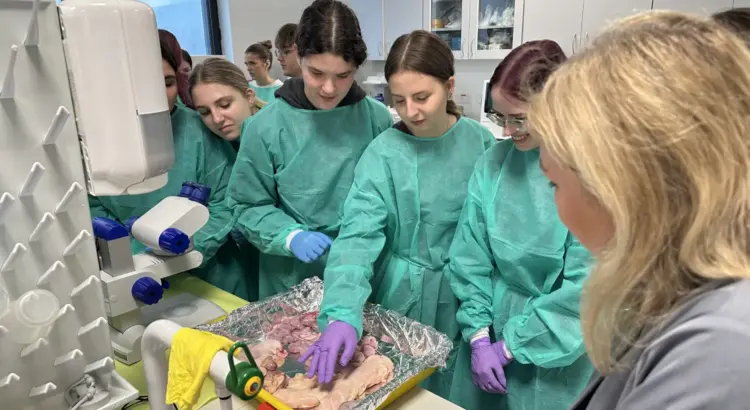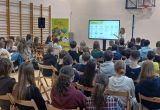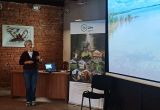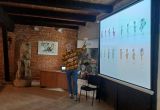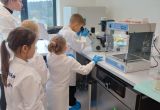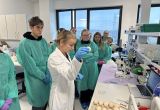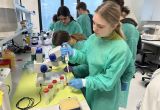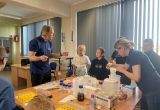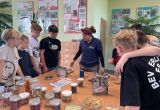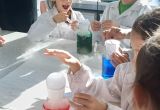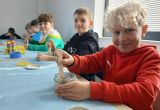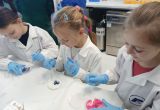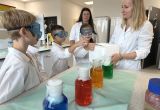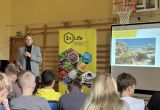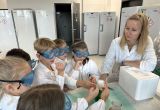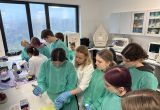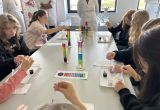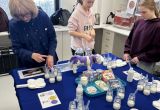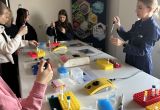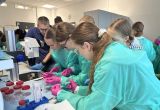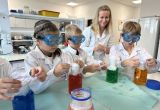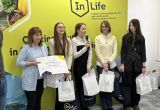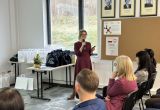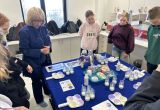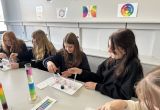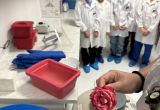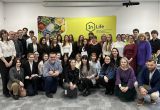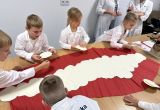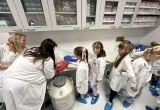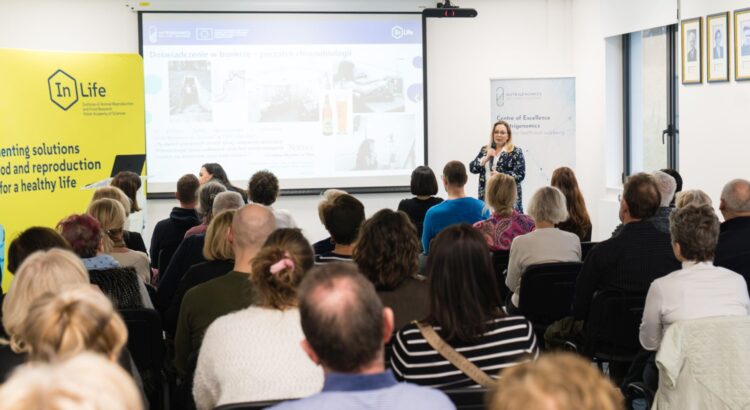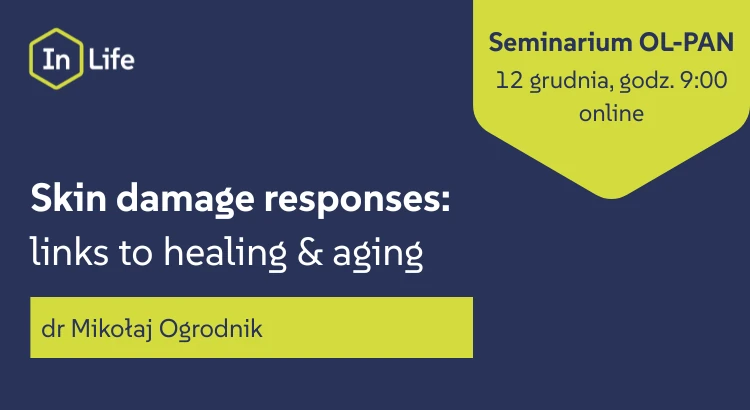Workshops in modern laboratories, demonstrations and experiments, and science that could be seen and experienced firsthand. Instead of dry theory – inspiring meetings and direct contact with scientists. This was the “Scientist’s Compass” project, implemented by the Institute in cooperation with the Educational Association “Erudycja” between October and December 2025. More than 1,300 students from the Warmia and Mazury region took part in the project.
As part of the project, scientists conducted workshops and educational sessions in the laboratories of the InLife Institute, in schools across the Warmia–Mazury Voivodeship, as well as at the Research Station in Popielno. These were exceptional biology, chemistry and nature science lessons – full of experiments, questions and discoveries. Even the youngest participants took part in hands-on activities!
The project involved over 1,300 students from 27 schools in the region, ranging from preschool children to upper secondary school students. A total of 50 Institute scientists were engaged in delivering the project activities.
The project consisted of six educational components:
1. Scientists with Passion – Pass it on
Scientists visited schools across the region to talk about their research work, share their experience and present possible scientific career paths. They also showcased their scientific achievements.
2. Academy of Big Questions for Young Minds
The youngest participants – preschoolers and students in grades 1–3 – visited the Institute’s laboratories, where through experiments, workshops and demonstrations they asked their first scientific questions and discovered the world of science in an accessible and engaging way.
3. Experiment, School!
These were outreach workshops delivered in primary schools throughout the region. The workshops and demonstrations focused on healthy nutrition, food safety and informed consumer choices.
4. Career Days
Held at the Research Station in Popielno, these activities gave upper secondary school students the opportunity to learn about the daily work of scientists and explore diverse research areas, including animal breeding, food science and environmental protection.
5. Science First-Hand
These workshops took place in the Institute’s modern laboratories. Students learned selected research methods and carried out their first professional experiments under the supervision of scientists.
6. „Student Research Project„ Competition
Upper secondary school students developed their own research projects under the guidance of mentors. Th competition concluded with a presentation of results during Researcher’s Day. Prizes included financial and material awards, as well as two mini-internships at the Institute.
The project was funded by the Ministry of Education.
